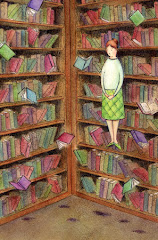
Until this exercise the only wiki I was aware of was the mother of them all: Wikipedia. This grass roots encyclopedia, which is now the #1 referenced source on the Internet, can be added to or edited by anyone at all. It is so controversial I even created a separate folder in my e-mail for articles discussing its merits and drawbacks. It is frowned upon and even forbidden as a source by teachers and professors because of its fluid nature and lack of reliability and authority. Definitely not a scholarly resource, it is on the other hand a bottomless source for information that can often not be found anywhere else. One study claimed that Wikipedia was more accurate than the Brittanica, which also contained mistakes, and that when false information was deliberately added it was usually corrected within minutes by zealous self-appointed editors, usually experts in their fields. And then of course there are the "vandals" who deliberately plant false and even libelous information just for fun. The comedian Stephen Colbert did just that for a hilarious skit on his television show.
The wikis mentioned in the articles on QL 2.0 site discussed the use of wikis as community networking tools. A wiki for this purpose was used at several ALA conferences to great success. I couldn't figure out how to access the podcasts listed in the information sources. The links led to a blog listing the different blogspots. Many of them sounded interesting, but there didn't seem to be any way to access or listen to the actual podcast. Wikis are apparently easy to set up and edit; the articles stress that they must have a focus and purpose. Shouldn't everything? One diagram illustrated how much more efficient they are in organizing communication in a community rather than the use of e-mails. Many of the wikis I ran across were for sharing resources for research and educational purposes, and some were focused on hobbies and particular interests.
One problem mentioned is that when anyone can add content, anyone can also edit and change another's writing. Most people find the idea of someone else "messing with" their writing offensive. And people often disagree on what "correct" content is.
Of all the wikis I ran across, the one I find most interesting and useful is Library Success: A Best Practices Wiki. I'll definitely go back there.

No comments:
Post a Comment